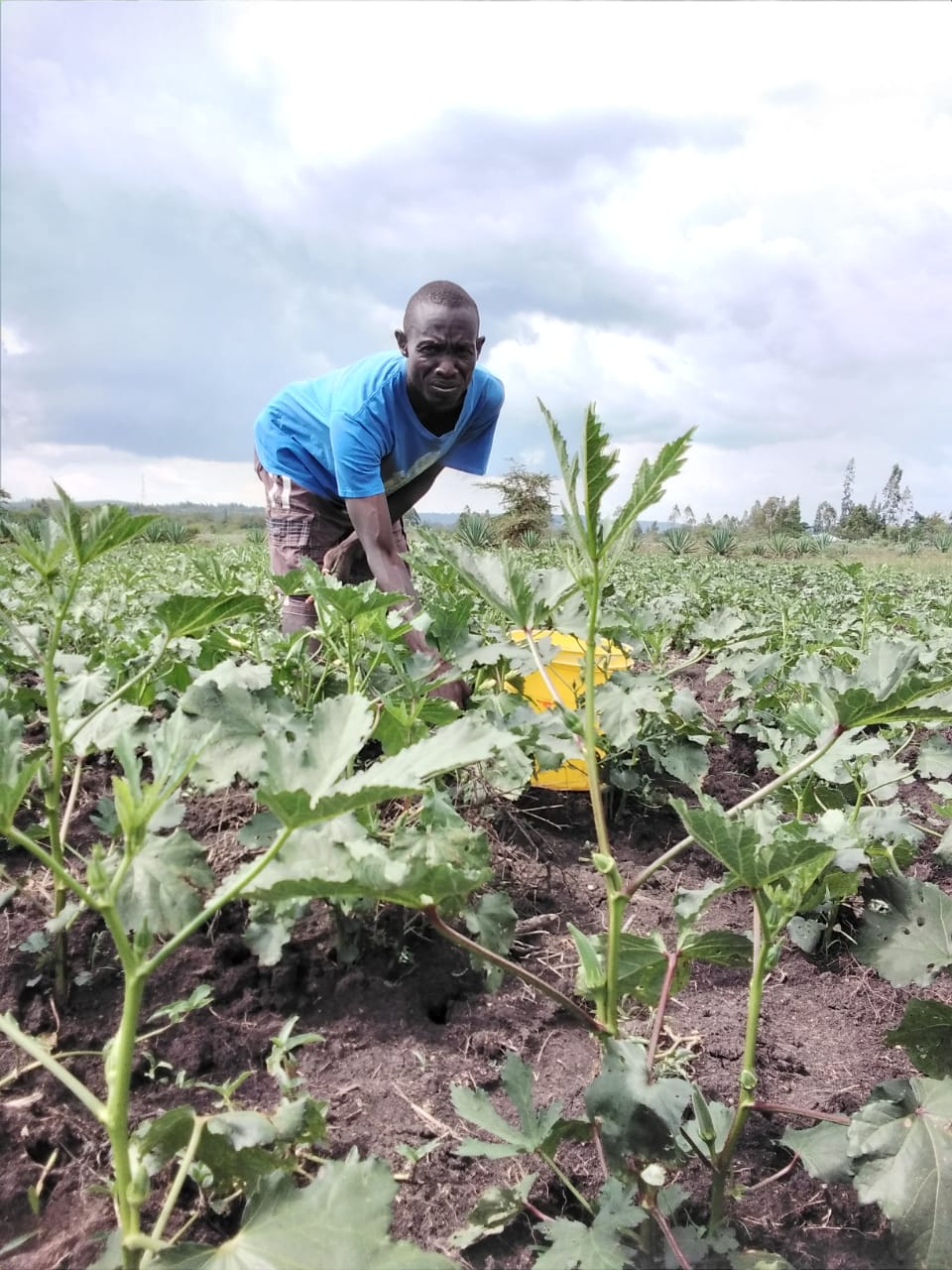
By George Munene
Low market prices can leave small scale farmers frustrated, but one Kisumu okra farmer has proven that simple value addition of valuable crop can triple his farming income with just one harvesting period.
With a short shelf life of seven to ten days, small scale farmers of this crop find it difficult to own cold rooms due to their exorbitant prices. This is where Paul Ochieng saw an opportunity- sun drying. Which has enabled him to export six kilos of dried okra weekly to South Sudan at a price of Sh100 per kilo, compared to other farmers who fetch just Sh80 for the fresh produce locally.
The annual post-harvest losses of fresh horticultural crops in Kenya are estimated at more than 50 per cent according to a 2010 research by The International Institute of Tropical Agriculture (IITA). Space and facilities to handle food products, especially fresh produce remain insufficient. This results in high levels of waste and spoilage dwindling farmers’ income.
“What opened my eyes in the drying of okra was when I met South Sudanese students from the Great Lakes University of Kisumu (GLUK) in 2016 who were buying the produce to trade back home. We agreed on a purchase price of Sh100 per kilo, Sh20 more than what Kisumu traders gave,” says Paul.
Related News: FarmBiz TV:Farmer grows fast acre of okra to make Sh6k in profits a day
Related News: Exporter looking for ginger, garlic, okra, pumpkin for its growing markets
Due to the good quality of Paul’s okra plant and high demand for the plant back in S. Sudan, the purchase price of a kilo moved from Sh100 per kilo to Sh300 per kilo—this was triple the initial agreement.
To prepare the fruit for drying Paul cuts the vegetable into slices of 1- 4 cm cross length and spreads them on hot rocks about 10:00 am in the morning when the rocks are already heated by the facilitating for speedy drying.
“In India, where okra is highly consumed, farmers often dry the produce using hot air driers or microwaves, but for me, I take advantage of the rocks in my homestead since I leave close Kit Mikayi a famous tourist attraction site,” he adds.
Despite exporting it as flour, Ochie’ng is paid in fresh weight. 150 kilos of fresh okra can produce about three kilos of flour which is packed in bags. This has reduced transport costs by almost 75 per cent.
“The high yielding "Pusa sawani" okra variety I grow matures in 45 to 55 days. I harvest 350kg a week; 300kg is turned into flour (about 6kg) for export to S. Sudan at Sh300 per kilo of fresh weight with the remaining 50kg supplied as fresh produce to Kisumu City’s Jubilee Market at Sh80 a kilo.” The farmer explained. This translates to Sh94,000 gross income a week and Sh367,000 a month.
Related News: Refugee changing her life by growing sweet potato, okra and kale in her camp kitchen garden
He says the harvesting period of okra being three months, at the end of every season he earns a gross of Sh1,128,000.
The students have also opened a restaurant within GLUK, making and serving okra flour chapatis and snacks to the many South Sudanese and other students in the campus. This has meant Paul continually increase his production to match rising demand.
Paul Otieno +254 769 559687
















Comments powered by CComment